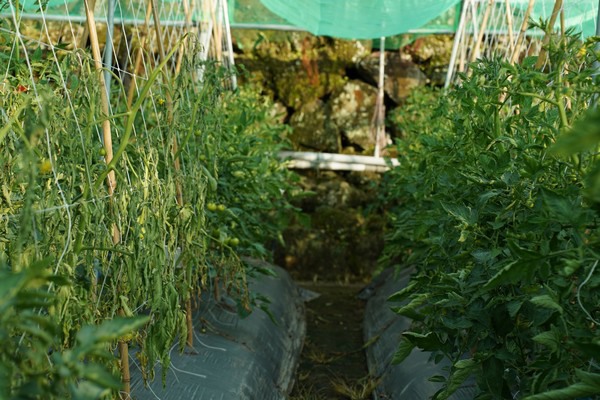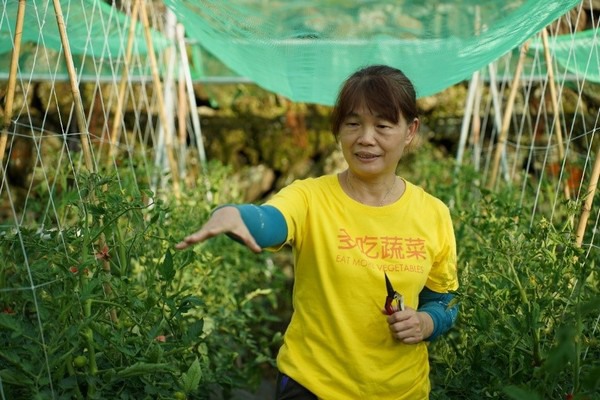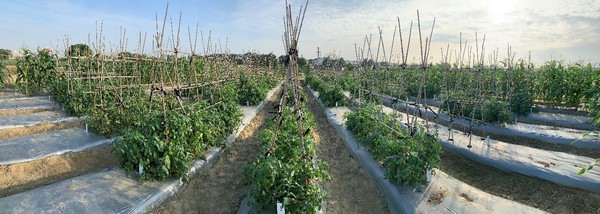In Taiwan, bacterial wilt is estimated to cause losses of more than US$12 million annually. This devastating soil-borne disease is caused by Ralstonia solanacearum and can lead to 100% mortality, though a survey in Taiwan [Plant Prot. Bull. (Taiwan) 33:197-203] found the incidence in summer-grown field tomatoes is around in 55% in susceptible hybrids, and 15-26% even with moderately resistant hybrids.
 Left: ungrafted tomato plants attacked by bacterial wilt, and health grafted plants (right)
Left: ungrafted tomato plants attacked by bacterial wilt, and health grafted plants (right)
The disease is very difficult to control with agrochemicals or biological treatments, and breeding for resistance has its limits. But one method that has worked successfully however, is to graft tomato plants onto eggplant rootstock that is resistant to bacterial wilt, and WorldVeg has been working on the identification of eggplant rootstocks with high levels of resistance to different pathogen groups that cause bacterial wilt.
 WorldVeg scientist Jaw-rong Chen inspecting grafted tomato plants
WorldVeg scientist Jaw-rong Chen inspecting grafted tomato plants
Due to the interest of commercial seedling producers in hybrid (F1) eggplant rootstocks with disease resistance, one Taiwanese company chose to collaborate with WorldVeg to develop and test of hybrid eggplant rootstocks. WorldVeg scientist and specialist in this disease, Jaw-rong Chen, explained. "We first selected five eggplant accessions with high resistance to bacterial wilt strains common in Taiwan. Then after crossing these five, we found that 13 F1 lines exhibited stable resistance to strain Pss97 of bacterial wilt, while four F1 lines (BE, EB, CB, DB) showed resistance to phylotype I (Pss4, Pss97, Pss2016) and phylotype II (Pss1632)."
The company then selected three of these F1 lines (CA, CD, AD) and tested them in multilocation trials in both highland and lowland areas of Chiayi County and Kaohsiung City. In Chiayi County, CA and CD F1 rootstocks showed good compatibility when grafted onto beef tomatoes (JinFu 993), but there were no significant differences in resistance, fruit weight and yield compared to commercial rootstocks EG203 and Fengshan No.3. In Kaohsiung City, CA and CD lines were compatible when grafted onto cherry tomatoes (Yunlu), though bacterial wilt was not severe in the field where they were planted and so resistance could not be adequately assessed.

"This work on hybridizing resistant lines has expanded the range of genetic material and protection against different strains of bacterial wilt," says Ricardo Oliva, WorldVeg Pathologist. "In the future, we want to expand to other locations in Southeast Asia, South Asia and Africa so we can test this genetic material against other strains of the pathogen."
Source: avrdc.org
